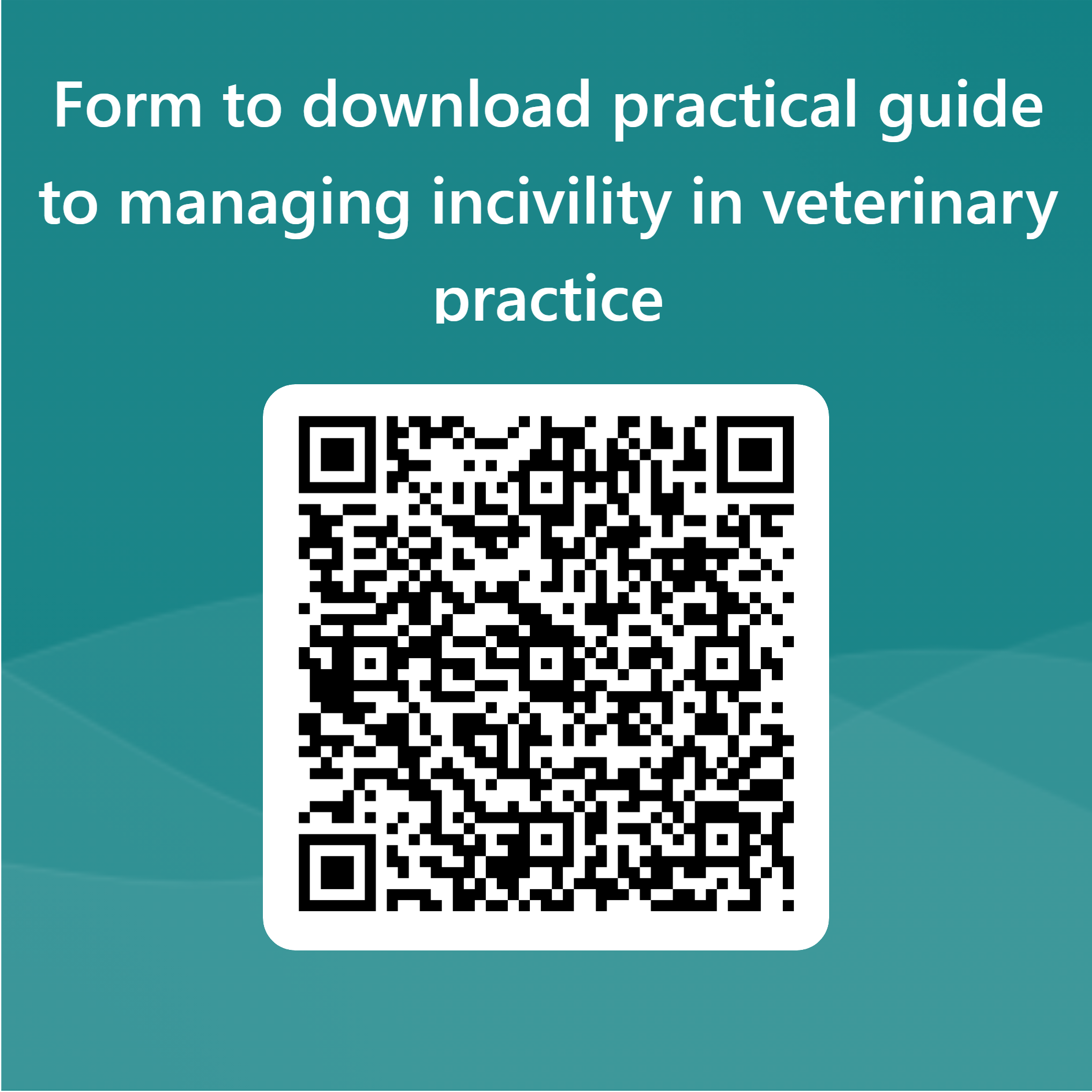
WHO: The Veterinary Incivility Toolkit (VIT) can be used by any and all veterinary practices and veterinary staff.
WHAT: The VIT was constructed using academic research conducted with veterinary staff in the UK and Ireland to ensure the insights and advice contained within the toolkit are informed by expert and real world experiences. The research was conducted by ourselves and others, has been collated and packaged to produce an informed, relevant and useful range of materials and activities designed to support veterinary staff in managing and mitigating workplace incivility. The toolkit includes a central pdf document outlining what incivility is, how it can impact staff, and suggested responses. There are also a range of explainer videos featuring veterinary experts discussing their incivility experiences. There are incivility cards designed to present core concepts as engaging diagrams and figures. There are also a range of worksheets and guided activities.
WHY: Incivility is a frequent and impactful behaviour arising from clients, co-workers and senior colleagues. Our research links uncivil interactions to increased anxiety, reduced job satisfaction, increased quitting intention and increased risk of burnout in veterinary staff. It is vital that uncivil behaviour is reduced, mitigated and managed in veterinary practices for the benefit and well-being of staff.
The toolkit now includes the new evidence-based guide ‘keeping it civil: a practical guide to managing incivility in veterinary practice’.
Special thanks go to our collaborators and supporters of this project, including: VetLed, Helen Silver-MacMahon, Prof Liz Mossop and Dr Luiz Santos.
Keeping it civil: a practical guide to managing incivility in veterinary practice
‘Keeping it civil: a practical guide to managing incivility in veterinary practice’ is an evidence-based guide for veterinary staff. Developed as a large collaboration between the University of Aberdeen and industry experts from organisations such as the RCVS, Being Human, VetLed, and academics from the University of Glasgow and the University of Nottingham, the guide includes information relevant to recognising and managing uncivil behaviour from clients and co-workers. The guide was launched on 3rd June 2024 and has been sent all over the worlad!
The guide is available for FREE as a printed copy, or an e-version, to interested veterinary practices and organisations. Just complete this form: ONLINE FORM or click on the QR code below to download your pdf copy of the guide.
We are currently at our limit for printing the guide, but keep checking back for updates and the opportunity to order printed copies.



